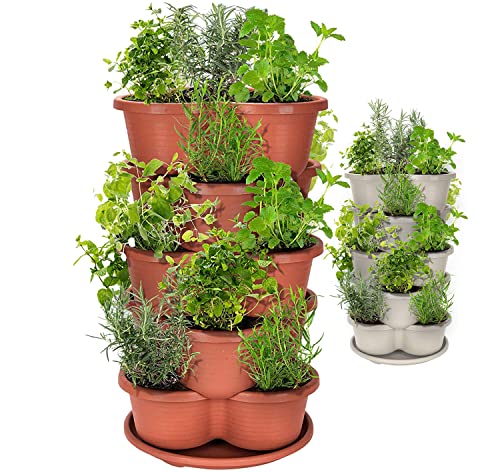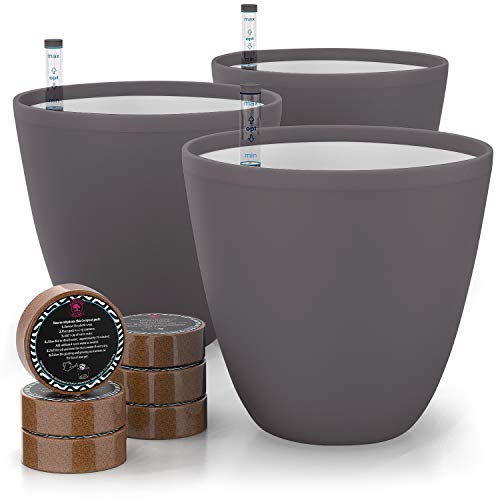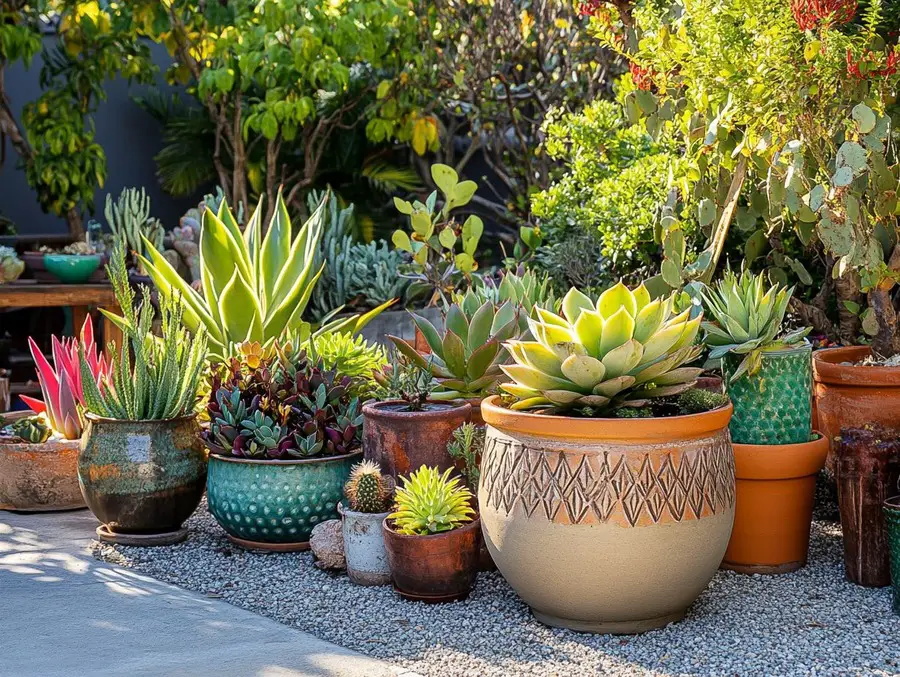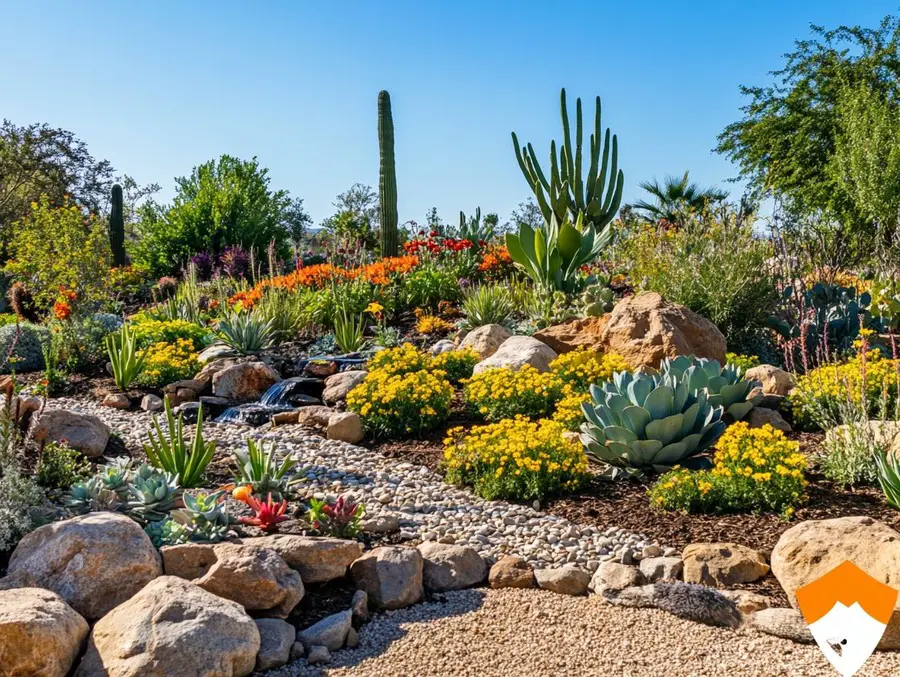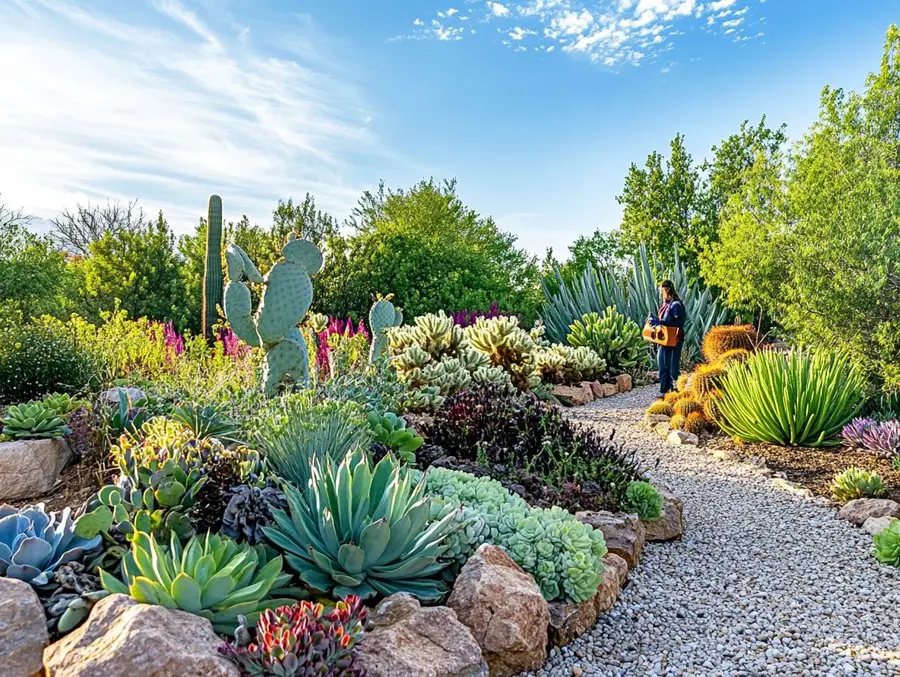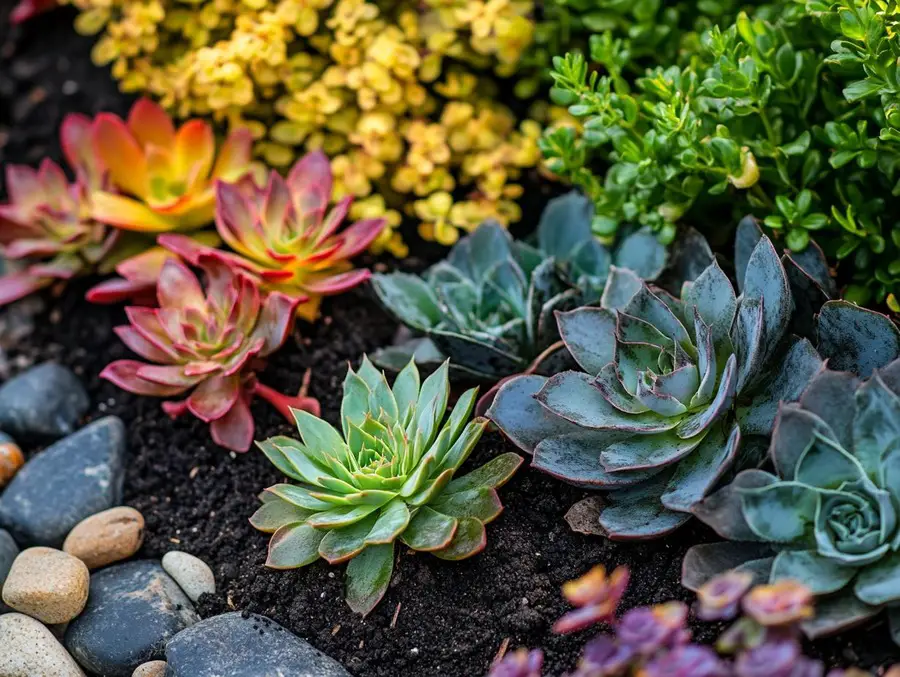We use affiliate links. If you purchase something using one of these links, we may receive compensation or commission.
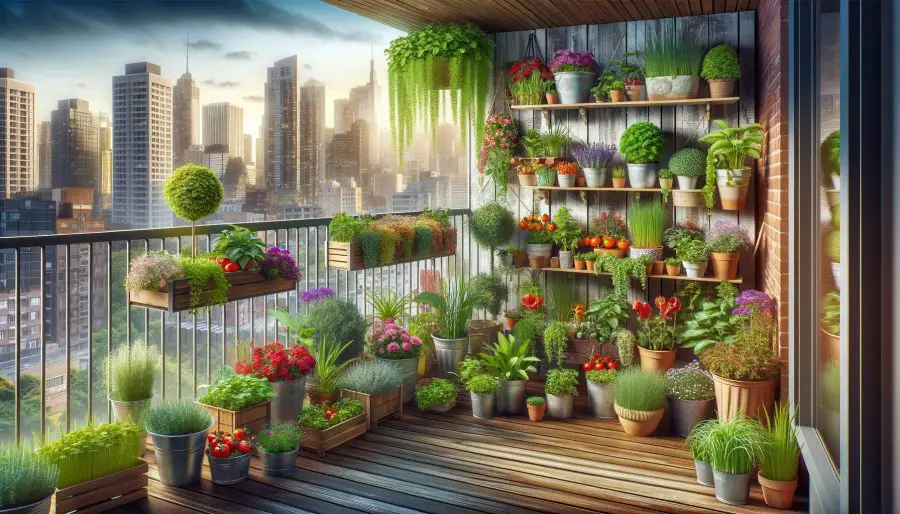
Discover the importance of urban container gardening a sustainable, space-saving solution for city dwellers to grow fresh produce and beautify their surroundings.
Urban Container Gardening Key Takeaways:
- Urban container gardening is a form of gardening that utilizes small spaces and promotes sustainable living by reducing carbon footprint.
- It provides easy and accessible access to fresh produce, improves air quality, and is cost-effective due to low maintenance.
- Various plants can be grown in urban container gardens, including vegetables, fruits, flowers, and succulents, making it a versatile and customizable gardening option.
Exploring the importance of urban container gardening unveils a world of possibilities for city dwellers.
This innovative approach to gardening transforms balconies, rooftops, and small spaces into lush, productive green areas.
Not only does it offer a practical way to grow fresh produce, but it also enhances the urban landscape, making it a vital aspect of modern city living.
The Importance of Urban Container Gardening
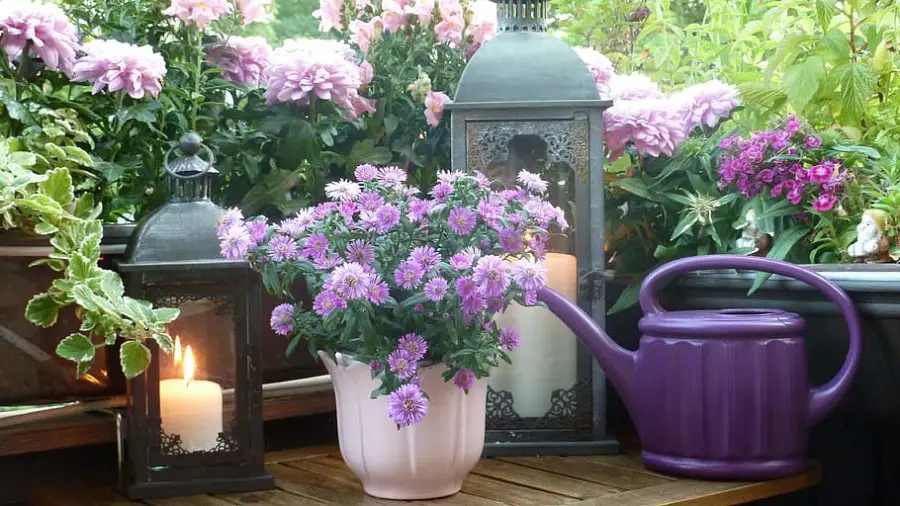
Urban container gardening has emerged as a popular and practical solution for city dwellers looking to bring the joys of gardening into urban spaces.
In this article, we’ll delve into the significance and benefits of urban container gardening, exploring how it allows individuals to utilize small spaces effectively, promotes sustainable living, and reduces carbon footprints.
We’ll uncover the various types of plants that thrive in urban container gardens, including vegetables, fruits, flowers, succulents, and cacti.
Whether you’re a novice or an experienced gardener, we’ll also provide essential tips on how to kick-start your urban container garden, from choosing the right containers to ensuring your plants receive adequate water and sunlight.
Join us as we explore the world of urban container gardening and discover how it can transform your urban living experience.
What Is Urban Container Gardening?

Urban container gardening, also known as urban potted gardening, is a method of cultivating plants, vegetables, and fruits in small containers within urban areas, promoting sustainable living and environmental awareness.
This innovative approach to gardening is gaining popularity in urban environments due to its ability to transform limited spaces into thriving green areas.
By utilizing available urban spaces for growing plants, it enables city dwellers to experience the benefits of gardening, regardless of space constraints.
Urban container gardening not only adds aesthetic value but also encourages urbanites to connect with nature and adopt a healthier lifestyle.
This method plays a crucial role in reducing food miles and promoting locally sourced produce.
Why Is Urban Container Gardening Important?
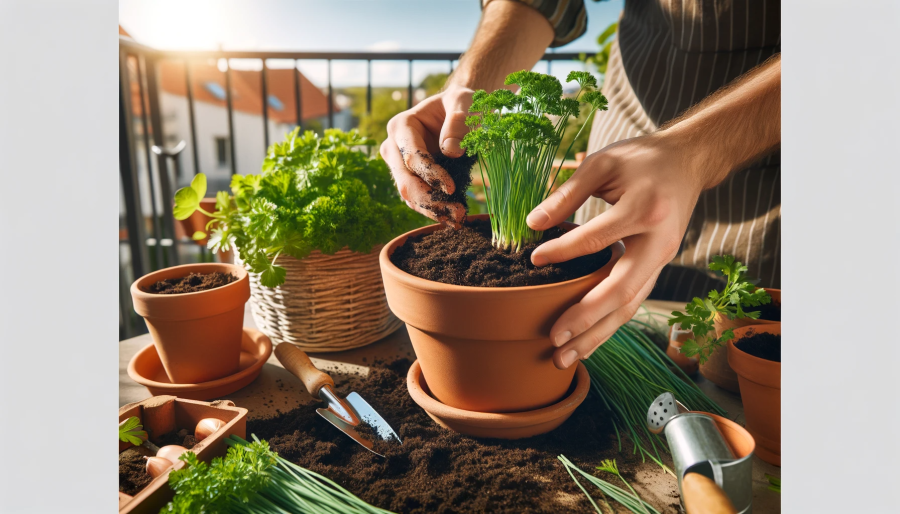
Urban container gardening plays a crucial role in promoting sustainable urban agriculture.
It enhances food security, and fosters a sense of domestic agriculture within urban communities, thereby addressing the economic and social importance of urban food produce.
Utilizes Small Spaces
Urban container gardening effectively utilizes small spaces, allowing for community participation in sustainable urban gardening initiatives that contribute to environmental regeneration and urban ecological biodiversity.
By utilizing innovative vertical structures and creative placement, urban container gardening maximizes space efficiency.
This enables the cultivation of diverse plant species such as herbs, vegetables, and flowers.
Through this approach, individuals and communities can actively engage in green spaces, promoting a sense of environmental responsibility and local food production.
Collaborative efforts in maintaining the garden, such as composting and water conservation, encourage resourcefulness and sustainable practices, fostering a harmonious relationship between urban development and ecological conservation.
Promotes Sustainable Living
Urban container gardening promotes sustainable living by fostering environmental awareness and encouraging healthy living practices within urban centers through the cultivation of organic food produce and gardening exercises.
The practice of urban container gardening not only provides city dwellers with the opportunity to grow their own fruits, vegetables, and herbs but also contributes to reducing their carbon footprint by minimizing food transportation.
By embracing this sustainable activity, individuals can enjoy fresh, organic produce without the use of harmful pesticides or chemicals, thereby making healthier food choices.
Engaging in gardening exercises in an urban setting allows people to connect with nature, reduce stress levels, and stay physically active.
It creates a sense of community and pride, as individuals cultivate a green space within their urban environment.
It fosters a deeper environmental awareness and appreciation for sustainable practices.
Reduces Carbon Footprint
Urban container gardening contributes to sustainable living by reducing the carbon footprint associated with food production and transportation, thereby positively impacting the urban environment.
With the rising concern about environmental sustainability, the practice of urban container gardening has gained significant attention.
By growing fruits, vegetables, and herbs in containers within urban spaces, individuals can take significant steps toward reducing their environmental impact.
This method directly diminishes the need for long transportation routes and large-scale farming, consequently lessening the associated carbon emissions.
In addition, it also promotes the utilization of organic farming practices and reduces the demand for commercially produced, packaged goods, further contributing to a healthier urban community.
Provides Fresh Produce
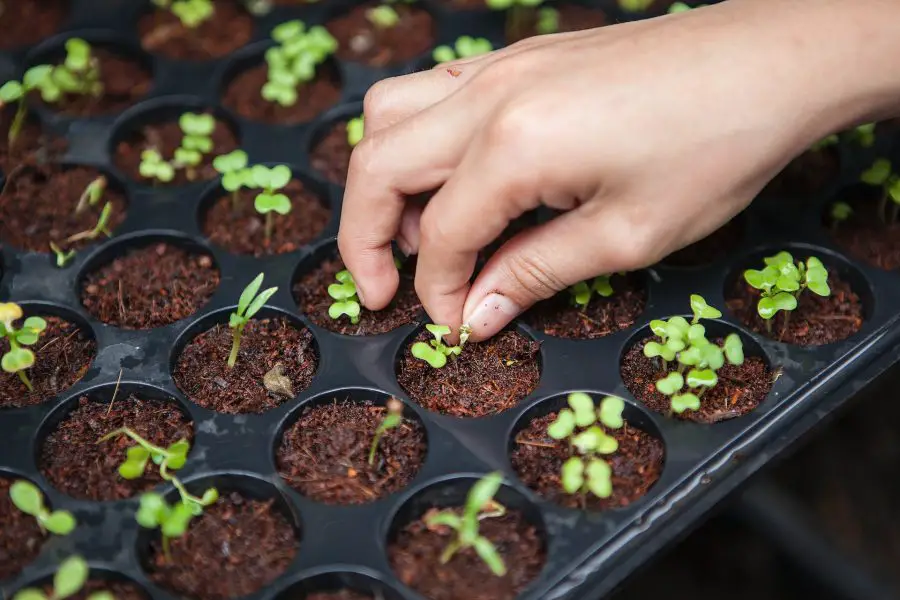
Urban container gardening provides urban dwellers with access to fresh produce, thereby contributing to food security and promoting healthier food choices within urban communities.
This innovative gardening method allows individuals living in urban areas to grow a variety of vegetables, herbs, and fruits in limited spaces, such as balconies, rooftops, and patios.
By utilizing containers, pots, hanging baskets, and vertical gardens, urban residents can cultivate nutritious produce within arm’s reach, reducing their reliance on commercially grown and transported food.
Urban container gardening not only enhances access to locally sourced, organic options but also encourages people to make nutritious choices by incorporating home-grown ingredients into their meals.
Ultimately it is contributing to a healthier and more sustainable urban lifestyle.
Improves Air Quality
Urban container gardening contributes to environmental regeneration by improving air quality through the cultivation of plants and vegetables, positively impacting urban ecological biodiversity.
By utilizing containers to grow a variety of greens and flowers, individuals can capitalize on limited space in urban areas to enhance greenery.
This not only beautifies urban spaces but also plays a crucial role in mitigating air pollution and temperature regulation.
The choice of plants, such as pollinator-friendly species and native flora, promotes ecological balance and supports local wildlife.
What Are The Benefits Of Urban Container Gardening?
Urban container gardening offers a multitude of benefits that cater to the needs of urban dwellers.
It promotes healthy living, environmental awareness, and sustainable urban living while providing amazing tips and ideas for urban gardening enthusiasts.
One of the key advantages of urban container gardening is its ability to maximize space in urban environments, enabling individuals to cultivate fresh produce in limited areas.
This form of gardening fosters a connection to nature and encourages a healthier lifestyle through the consumption of homegrown, organic fruits and vegetables.
It contributes to environmental sustainability by reducing food transportation emissions and offers a creative outlet for urbanites seeking relaxation and stress relief.
Easy and Accessible
Urban container gardening is easy and accessible, making it a viable option for individuals seeking to engage in community gardening initiatives and sustainable urban horticulture.
One of the key benefits of urban container gardening is its flexibility, as it allows people to grow plants in limited spaces, such as balconies, patios, windowsills, or small backyard areas.
This method of gardening also offers the opportunity to cultivate a variety of plants, from herbs and vegetables to colorful flowers, enhancing the aesthetic appeal of urban environments.
Low Maintenance
Urban container gardening requires minimal maintenance, making it an ideal option for urban communities to engage in horticulture activities while positively impacting the urban environment.
With limited space in urban areas, container gardening allows individuals to grow fresh produce and vibrant flowers on balconies, patios, windowsills, and rooftops, enhancing the visual appeal of the cityscape.
The versatility of containers facilitates plant management and watering, reducing the need for extensive labor and resources.
Urban container gardening promotes sustainability by utilizing recycled containers and integrating environmentally friendly practices, contributing to a greener and cleaner urban setting.
Versatile and Customizable
Urban container gardening is versatile and customizable, offering ample opportunities for creative planting and efficient space utilization within urban living environments.
Whether it’s a small balcony, rooftop, or windowsill, urban residents can use containers of different shapes and sizes to create their own green oasis.
The flexibility of container gardening allows for a wide range of plants, from colorful flowers and aromatic herbs to compact vegetables, bringing nature closer to city dwellers.
Clever placement of containers can maximize outdoor space to its fullest potential, adding visual appeal and contributing to a healthier environment.
Cost-effective
Urban container gardening is a cost-effective approach with significant economic importance, offering potential job opportunities and enhancing the economic sustainability of urban communities.
By utilizing small spaces such as balconies, rooftops, or windowsills, urban container gardening presents an affordable alternative to traditional agriculture methods.
It harnesses underutilized urban areas and reduces the need for expensive land acquisitions.
The production of fresh fruits, vegetables, and herbs in these containers not only contributes to a more sustainable food system but also lowers transportation costs, thereby aligning with environmental and economic goals.
Through community-supported agriculture programs and local farmers’ markets, urban gardeners can generate income and foster a sense of local ownership and pride.
What Types Of Plants Can Be Grown In Urban Container Gardens?
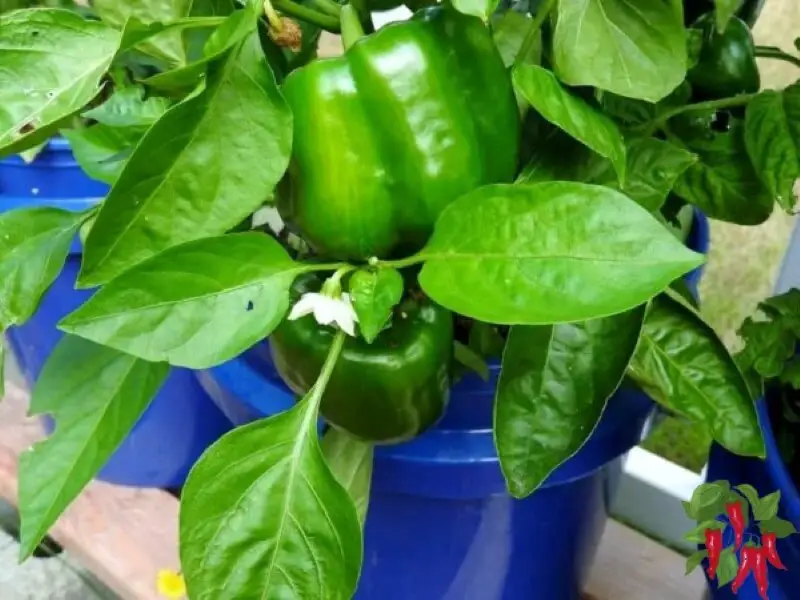
Urban container gardens can accommodate a diverse range of plants, including vegetables, fruits, flowers, and even succulents, making them suitable for cultivation in small spaces within urban environments.
These gardens offer an array of options for individuals looking to add greenery and fresh produce to their living spaces.
From compact tomato plants and vibrant peppers to fragrant herbs and colorful blooms, there’s a plant suitable for every preference and space constraint.
The adaptability of these gardens enables city dwellers to experience the joys of gardening without the need for a large backyard or dedicated outdoor area.
The flexibility of container gardening allows for the incorporation of various plant species, creating visually appealing arrangements that enhance urban living spaces.
Vegetables and Herbs
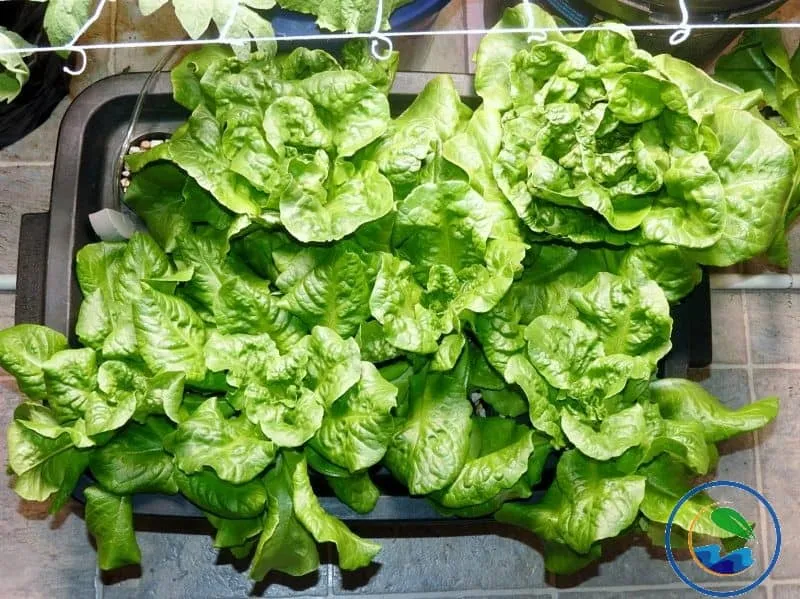
Urban container gardens are ideal for cultivating a wide array of vegetables and herbs, promoting organic and sustainable urban agriculture practices within urban living spaces.
By using containers, individuals can efficiently grow lettuce, tomatoes, peppers, green onions, and a plethora of herbs on their balconies, patios, or even windowsills.
This not only adds beauty to the urban landscape but also contributes to local food production and reduces the carbon footprint associated with transporting produce from rural areas.
Container gardens offer the flexibility to control soil quality, sunlight exposure, and water usage, making it easier to adopt organic and sustainable practices in urban settings.
Fruits
Urban container gardens support the cultivation of various fruits, contributing to the production of fresh and healthy food produce within urban environments.
The versatility of urban container gardens makes it possible to grow strawberries, blueberries, and figs, among others, in limited spaces.
These gardens provide an accessible way for city dwellers to enjoy the benefits of homegrown fruit that is free from harmful chemicals and pesticides.
The aesthetic appeal of fruit-bearing plants in urban settings adds a touch of natural beauty and tranquility to the surroundings.
Flowers
Urban container gardens provide a platform for nurturing and showcasing an assortment of flowers, contributing to the beautification of urban spaces and promoting urban horticulture practices.
When designing an urban container garden, diversity becomes a key factor.
Thiller Spiller Filler Arangements
A mix of tall spiky plants like foxgloves, medium-sized fillers such as petunias, and trailing vines like ivy can create a multi-layered, visually appealing display.
The varied colors, shapes, and textures of different flowers offer a vibrant and dynamic aesthetic to urban areas, adding charm and vitality to city settings.
Urban container gardens play a crucial role in enhancing biodiversity as they attract pollinators such as bees, butterflies, and birds.
These tiny habitats can significantly contribute to the overall greenery and ecological balance in urban settings.
Succulents and Cacti
Urban container gardens are suitable for cultivating and showcasing an assortment of succulents and cacti, making them an ideal choice for small-space urban gardening enthusiasts.
The diverse range of succulents and cacti that can thrive in urban container gardens includes Echeveria, Aloe, Sedum, and various species of cacti, adding a touch of natural beauty to urban living spaces.
These plants are well-suited for the limited space available in urban environments and require minimal maintenance, ideal for those with a busy lifestyle.
The drought-resistant nature of succulents and cacti further enhances their appeal, making them a practical and visually captivating choice for urban gardening.
Their ability to thrive in small containers allows enthusiasts to create striking arrangements, adding a unique aesthetic to balconies, patios, or windowsills.
How To Start An Urban Container Garden?
Starting an urban container garden requires careful selection of containers, appropriate soil, and the right plants, along with consistent watering and maintenance to ensure successful cultivation in urban living spaces.
When selecting containers for your urban garden, opt for containers with adequate drainage holes to prevent waterlogging and ensure proper aeration for plant roots.
Consider the size of the containers with the plants you intend to grow, providing ample space for root development.
The soil used in container gardening should be well-draining, nutrient-rich, and specific to the plant’s needs.
Look for a high-quality potting mix or coco coir and consider adding perlite or vermiculite for improved aeration.
As for plant selection, choose varieties suitable for containers and urban environments, such as compact vegetables, herbs, or dwarf fruit trees.
In terms of watering practices, monitor the moisture levels closely and water when the top inch of the soil feels dry.
Finally, maintenance involves regular pruning, fertilizing, and monitoring for pests to ensure healthy growth.
Choose The Right Containers
Choosing the right containers is essential for urban container gardening, ensuring efficient space utilization and compatibility with urban living environments.
Urban container gardening relies heavily on the selection of suitable containers, as they play a pivotal role in optimizing space and ensuring that plants thrive in urban settings.
Containers should be chosen based on both functionality and aesthetic appeal, as they contribute to the overall look and feel of the urban environment.
The containers must be versatile, durable, and ideally lightweight for ease of transportation within the urban landscape.
They should have proper drainage to prevent waterlogging and potential damage to plants.
Select The Appropriate Soil
Selecting the appropriate soil is vital for urban container gardening, as it directly influences the quality of planting and supports organic cultivation practices.
Urban container gardening requires careful consideration of soil quality to ensure optimal growth.
The type of soil used affects the moisture retention, nutrient availability, and root development of plants in containers.
Using a well-balanced, nutrient-rich soil promotes healthier plant growth and aids in the prevention of pests and diseases.
The right soil composition fosters better aeration and drainage, crucial elements for successful urban gardening.
By choosing the suitable soil, urban gardeners can create a foundation for sustainable and thriving organic cultivation in confined spaces.
Pick The Right Plants
Choosing the right plants is crucial for urban container gardening, allowing enthusiasts to cultivate a diverse range of vegetables, fruits, and flowers within urban living spaces.
When selecting plants for urban container gardening, it’s essential to consider the space available and the specific growing conditions of the area.
Choosing plants that thrive in containers, such as compact varieties of tomatoes, peppers, and herbs, can maximize the yield and aesthetics of the garden.
Furthermore, selecting plants with varying growth habits and maturity times can provide a continuous harvest throughout the season, offering a diverse range of fresh produce and vibrant blooms.
Patios, balconies, and windowsills can be transformed into lush, fruitful spaces with the right selection of plants that complement each other and coexist harmoniously.
Provide Adequate Water and Sunlight
Providing adequate water and sunlight is essential for urban container gardening, promoting sustainable cultivation practices, and ensuring the vitality of the urban garden environment.
Container gardening in urban areas presents unique challenges due to limited space and access to natural resources.
Water needs to be managed efficiently, considering factors such as evaporation and plant requirements.
Strategic placement and timing of sunlight exposure are crucial for photosynthesis and overall plant health.
By prioritizing these elements, gardeners can create a thriving ecosystem in limited spaces, contributing to a more sustainable urban landscape.
Regular Maintenance and Care
Regular maintenance and care are essential for urban container gardening, requiring enthusiasts to engage in horticultural practices to ensure the health and growth of urban garden plants.
Just like any other garden, urban container gardening requires dedicated attention and care.
The practice involves regularly checking for signs of pests, diseases, and nutrient deficiencies in the plants.
Ensuring appropriate watering, fertilization, and pruning are integral to maintaining a thriving urban garden.
By engaging in these horticultural practices, enthusiasts not only nurture the well-being of their plants but also contribute to the aesthetics and greenery of urban spaces.
Importance of Urban Container Gardening FAQs
Q. What is the importance of urban container gardening?
A. Urban container gardening is important because it allows city dwellers to grow their own fresh produce in limited spaces. It also promotes sustainability and reduces food waste.
Q. How does urban container gardening benefit the environment?
A. Urban container gardening helps to reduce the carbon footprint of food production, as it eliminates the need for long-distance transportation of produce. It also contributes to cleaner air and promotes biodiversity in urban areas.
Q. Why is urban container gardening a practical solution for limited spaces?
A. Unlike traditional gardening methods, urban container gardening takes up very little space and can be done on balconies, rooftops, or even windowsills. It allows city dwellers to enjoy gardening without the need for a large backyard.
Q. What types of plants can be grown in urban container gardens?
A. Urban container gardening is versatile and allows for a variety of plants to be grown, including vegetables, herbs, fruits, and even flowers. The key is to choose plants that thrive in smaller spaces and containers.
Q. How does urban container gardening promote healthy eating?
A. By growing your own produce in urban container gardens, you have control over what types of fertilizers and pesticides are used, if any. This promotes healthier and more nutritious food choices for you and your family.
Q. What are some additional benefits of urban container gardening?
A. Aside from providing fresh and healthy produce, urban container gardening can also serve as a stress-relieving hobby and a way to connect with nature amid a busy city. It can also be a great educational tool for children to learn about gardening and where their food comes from.
The Importance of Urban Container Gardening Conclusion
Let’s sum things up:
Urban Container Gardening Key Takeaways:
- The importance of urban container gardening lies in its ability to make efficient use of limited urban spaces.
- It allows city residents to grow their own fresh produce.
- It contributes to sustainable living and reducing the carbon footprint.
- This form of gardening is adaptable, accessible, and serves as a green oasis in urban environments.
Conclusion: Embracing Urban Container Gardening
Urban container gardening stands as a beacon of sustainability and practicality in the heart of our cities.
It’s not just a trend; it’s a lifestyle shift towards greener, healthier urban living.
This innovative approach merges the desire for fresh produce with the challenges of limited urban spaces, transforming them into vibrant, life-sustaining environments.
Sustainable Urban Ecosystems
Urban container gardens contribute significantly to creating sustainable urban ecosystems.
They bring a slice of nature to concrete landscapes, fostering biodiversity and improving air quality.
This practice aligns perfectly with eco-friendly living, making a noticeable impact on urban sustainability.
Health and Wellness Oasis
These gardens aren’t just about aesthetics; they’re a source of physical and mental well-being.
Gardening activities promote relaxation and stress reduction, while the harvest offers fresh, organic produce right at your doorstep.
This accessibility to healthy food options is invaluable in urban settings.
Community Engagement and Education
Urban container gardening goes beyond individual balconies and rooftops; it’s a community endeavor.
It encourages community involvement, fostering connections among neighbors and educating urban dwellers, especially children, about the importance of sustainability and where their food comes from.
Economic Benefits
Adopting urban container gardening can lead to economic benefits as well.
It can reduce grocery bills, offer potential income through the sale of surplus produce, and even create job opportunities in urban agriculture sectors.
The Future of Urban Living
Looking ahead, urban container gardening holds the key to reshaping our urban landscapes.
As more individuals and communities embrace this practice, we move closer to creating greener, more self-sufficient urban environments.
This form of gardening is not just a trend, but a crucial step towards a sustainable future.
Related Content
Visit my Amazon Influencer Page for videos and gardening products Grow Your Own Garden





